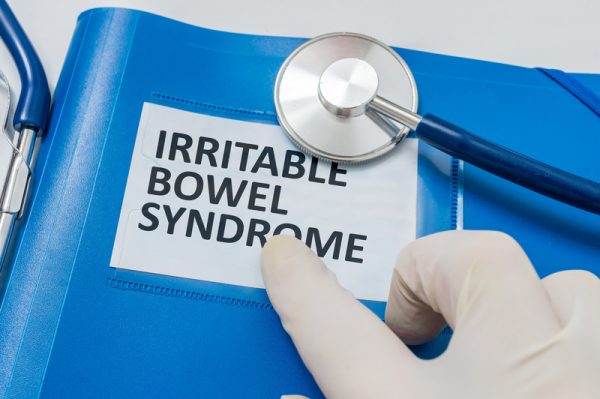Irritable bowel syndrome, irritable or oversensitive bowel syndrome is a condition that often affects women aged 30-40 years. Of course, other age ranges and gender cannot be excluded. This syndrome can also happen to teenagers or seniors. However, patients often underestimate this problem, ignoring the serious consequences that a neglected irritable bowel syndrome can lead to. For this reason, it is worth getting to know the basic issues of this disease, learn about the symptoms and consequences of non-compliance with the rules of nutrition and check what are the most popular diets (what to eat, what products to avoid).
Irritable bowel syndrome – characteristics
What is Irritable Bowel Syndrome? It is a disease that usually results in cramps, gas and gas. What’s more, this ailment can manifest itself as a constant trouble with the abdomen, we are talking here about diarrhea and constipation. It is worth knowing that it affects even every fifth person and not everyone is aware that they may suffer from it.
It is also worth remembering that irritable bowel syndrome is not caused by bacteria or viruses. Moreover, the disease is not associated with other problems such as ulcers, appendicitis, cancer or gallbladder stones. Moreover, there have been no changes in the structure of the digestive system and it performs its functions properly. Unfortunately, despite proper work, part of the intestine does not work properly, moving the fecal mass too quickly or too slowly towards the rectum. For this reason, the above-mentioned diarrhea or constipation very often occurs. We must also not forget that people who may deal with irritable bowel syndrome very often experience discomfort. It is related to the fact that there is a feeling of the so-called incomplete bowel movement.

Irritable bowel syndrome – symptoms
The most serious symptoms are diarrhea or constipation. They sometimes appear alternately, which makes it difficult to limit them in some way (be it drugs or natural decoctions). In addition to problems related to proper bowel movement, an oversensitive gut can also cause chronic and persistent gas. In some cases, it may also develop back pain, especially in the lower segment, urinary incontinence and frequent urination, pain in muscles and joints, and nausea. Psychiatric problems, including anxiety and depression, can also be symptoms of chronic disease of the large and small intestine.
However, the worst should not be assumed immediately. In many cases, the correct diagnosis of irritable bowel syndrome takes place after a minimum of two or three months. Only after this time, if the symptoms persist, we should go to a specialist doctor who will diagnose and tell you how to deal with this ailment. However, the most important thing to remember is that not all abdominal pain and problems with bowel movements can be a sign of this disease. There are many ailments that can manifest as gastric problems. We are talking here not only about intolerance to a certain ingredient, but also about very serious diseases, such as cancer. For this reason, the symptoms should not be underestimated and if they persist, you should go to the gastroenterologist immediately.
The reasons behind this disease
Modern medicine is not able to fully define what exactly causes this disease and what its sources are. The reasons are therefore only circumstantial and specialists around the world can only guess what may cause the disease to develop. However, it has been observed that very often irritable bowel syndrome is associated with visceral hypersensitivity. In addition, it is also said that disturbances in intestinal motility along with disturbances in the intestinal nervous system contribute to the occurrence of this problem. Very often, however, mental problems are listed as one of the most important causes. It is the nervous background, i.e. the ubiquitous stress in our lives, nervousness or depression that can lead to the appearance of this disease.

How to fight irritable bowel syndrome?
Effective treatment of irritable bowel syndrome is very difficult and often focuses on symptomatic and prophylactic treatment. There are several possible solutions we can consider when it comes to fighting Irritable Bowel Syndrome. One of them is to follow a proper diet. Another equally good and often used solution is the administration of small doses of drugs that inhibit intestinal peristalsis.
Pharmacological treatment
A disease with no well-defined causes is extremely difficult to treat. For this reason, medications that are designed to counteract symptoms are the most commonly used medications. This means that the medications get rid of problems related to bloating, constipation, diarrhea, or other symptoms. For obvious reasons (different symptoms in patients and the heterogeneous form of the disease), it is difficult to determine which drug will best help in solving our problem. For this reason, the most common options we will hear from our doctor are anti-spasmodic, anti-flatulence, constipation or laxative medications. What’s more, in the event of such a need, the doctor may also prescribe antibiotics. Antidepressants and psychotropic medications can also be a significant help in the treatment of irritable bowel syndrome.
Irritable bowel syndrome – diet
Many people forget that what we eat has the greatest impact on the functioning of our body. Food that is highly processed is not only difficult to digest for us, but very often it leads to the emergence of other diseases. Such problems include diabetes, hypersensitivity to gluten, gastric reflux, obesity and the occurrence of civilization diseases. To ensure that stomach problems go away and we don’t have to worry about Irritable Bowel Syndrome, a nutritional diet should meet several conditions.
First of all, you should familiarize yourself with the high-residual diet. It is a high-fiber diet that is recommended in the fight against constipation and in preventing problems associated with intestinal diseases. Moreover, it is also a diet that works against the development of atherosclerosis, diabetes and obesity. Of course, the most common ingredients in this diet are those that are high in fiber. We are talking about thick groats, dark breads, rice (brown rice in particular) or some fruits. Prunes are a good source of fiber. Other raw vegetables and fruits are also a very good way to replenish the fiber in our body. We also cannot forget about legumes. Another option may be to eat oatmeal. However, it should be remembered that
Summary
Irritable bowel syndrome is an inconspicuous disease that can make life difficult in many situations. It affects not only our physical condition, but also our mental state. For this reason, you should be careful about the symptoms of irritable bowel syndrome and consult a doctor as soon as possible, without taking any actions that could harm us in some way.



